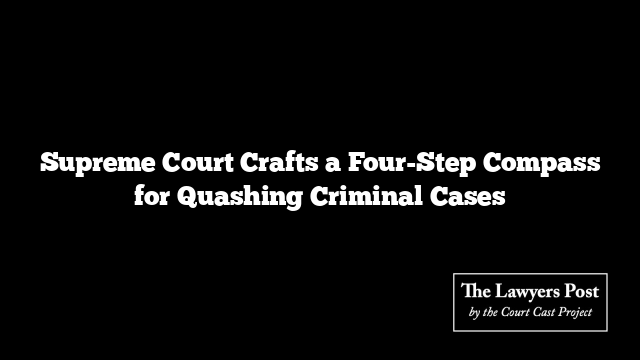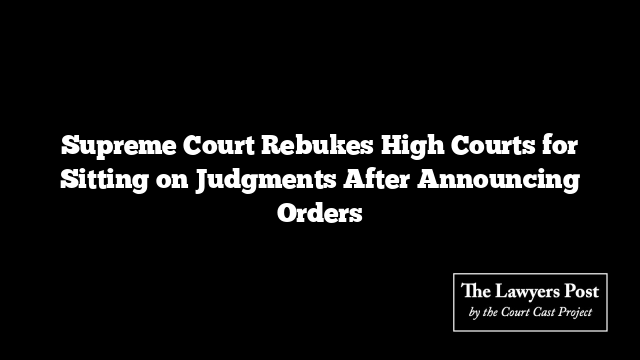The Supreme Court has drawn up a clear roadmap for High Courts on how to navigate petitions seeking quashing of criminal proceedings under Section 482 of the CrPC (now mirrored in Section 528 of the BNSS).
The bench, led by Justices JB Pardiwala and Sandeep Mehta, emphasized that a High Court must weigh an accused’s plea for quashing against four decisive touchstones:
-
Reliability of the material – Is the evidence relied upon by the accused of impeccable and unquestionable quality?
-
Power to dismantle allegations – Does it knock the foundation out of the charges, leaving them hollow to any reasonable eye?
-
Unrefuted strength – Has the prosecution been unable—or incapable—of meaningfully countering the material placed?
-
Justice versus process – Would forcing a trial despite such material amount to sheer abuse of court time and fail the ends of justice?
The Court explained that when all four answers tilt in the accused’s favor, conscience itself should guide the High Court to quash the case—saving not only the individual from needless trial but also sparing judicial hours from being consumed by proceedings doomed to collapse.
This principle was crystallized while overturning an Allahabad High Court order that had refused to quash summons in a rape-on-false-promise-of-marriage case. The accused, Pradeep Kumar Kesarwani, argued the relationship was consensual, and the complaint surfaced only after four years, raising doubts about its authenticity.
The apex court found the delay glaring and the allegations unconvincing. It held that both the magistrate and the High Court had erred in allowing the complaint to proceed. The summons were set aside, and the case quashed.
With this ruling, the Court has essentially handed the High Courts a four-step compass to decide future quashing petitions with clarity and consistency.





